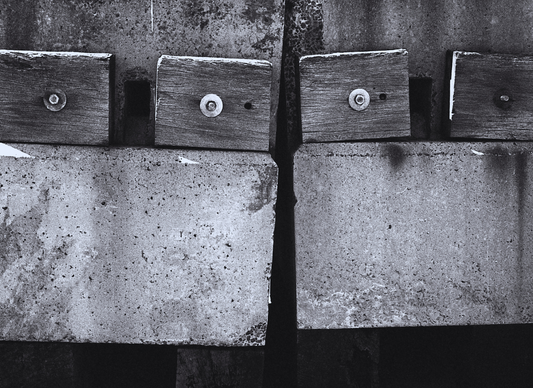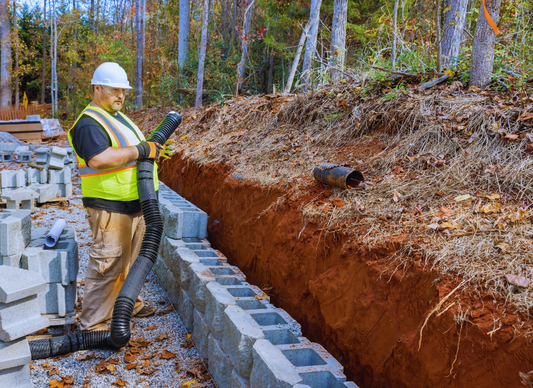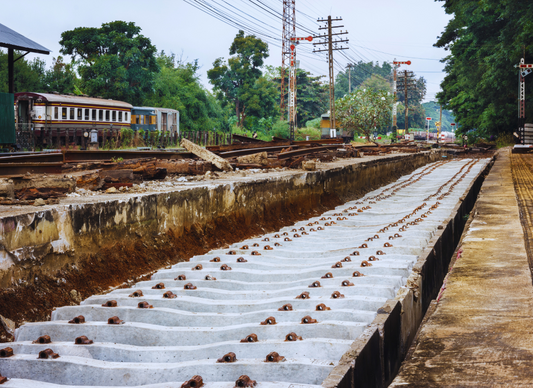Walls have been part of landscaping for a long time. Some of the earliest walls in gardens date back to ancient times when Romans were first creating structures to divide and define spaces. Over the centuries, styles and materials changed but walls have always served important purposes.
Retaining walls in particular allowed people to make use of sloped land that would otherwise be too uneven. By holding back soil, these walls flattened steep areas into places where you could have gardens, yards or other amenities. Homeowners essentially gained more property to enjoy thanks to the layout-changing abilities of retaining walls.
Today, retaining wall post and garden walls still add practical and aesthetic value. Besides structuring the land, attractive walls that incorporate plants, trees and other landscaping make yards more beautiful. Let’s look at more ways how retaining and garden walls add value to your property.
1. Visual and Practical Benefits
Using retaining walls to build elevated garden beds offers both visual and practical advantages for your landscape. The clear boundaries create a vibrant and thoughtful showcase of natural beauty. Meanwhile, the raised tiers provide improved soil conditions and drainage. Incorporating integrated irrigation systems into the raised beds can enhance plant health and growth by delivering water directly to the roots, while reducing water waste.
Retaining walls can also effectively generate a microclimate by influencing sun and wind exposure. For example, a south-facing wall can harness direct sunlight throughout the day to warm the soil for heat-loving plants. Similarly, walls can act as windbreaks for delicate plants. A little strategic planning goes a long way in elevating your garden's potential.
2. Privacy
A retaining wall can be an unexpected yet discreet method to enhance the privacy of a raised patio, especially in urban or suburban areas where homes are closely spaced. When designing your retaining wall, consider not just the height and placement, but also the materials used, as different materials can offer varying levels of sound insulation and seclusion, affecting the overall ambiance of your outdoor space.
For instance, solid concrete naturally provides effective sound blocking, while stone and brick may not perform as consistently if there are small gaps. Beyond shielding from neighboring properties, a strategically positioned wall can also improve the comfort of your seating area by blocking unwanted winds or intense sunlight.
3. Architectural Design
Retaining walls can greatly enhance the architectural appeal of a landscape. They add texture, shape, and rhythm that harmonize with the exterior of your home. The selection of materials, ranging from natural stone to modern concrete, can complement your home's style while crafting a cohesive and visually captivating outdoor space.
Furthermore, incorporating lighting along a retaining wall offers both aesthetic and practical benefits to your outdoor area. The primary advantage is extending your enjoyment of the outdoor space into the evening hours. The lighting can also be creatively designed to highlight the surrounding plants and features, creating a delightful night-time garden ambiance.
4. Reduces Maintenance Costs
Homeowners often enjoy spending time tending to their backyards and properties. However, leisure time can be limited, and you may wish to have more opportunities to unwind and savor your yard on a pleasant afternoon. Yards with retaining walls generally demand far less maintenance, freeing up your time to pursue your passions.
Retaining walls help to secure soil and plants, reducing the need for regular tasks like replanting or adding new soil. Additionally, they cause minimal disruption to the existing natural vegetation in your backyard.
5. Creates More Garden Spaces
A vibrant landscape is a wonderful way to express your personality, and retaining walls can be the canvas upon which you create. If you have a green thumb and adore lush flora, retaining walls open up opportunities to cultivate grand garden spaces that will not only fulfill your love of greenery but also impress your neighbors. They add depth and dimension to an otherwise flat area.
Furthermore, retaining walls can provide you and your family with an additional outdoor space to sit and immerse yourselves in nature. Retaining walls serve a dual function. This allows you to host as many people as you desire for parties, cookouts, and celebrations.
6. Erosion Control
Retaining walls are crucial for sloped gardens where soil stability is at risk, as their primary function is erosion control. The effectiveness of a retaining wall in preventing erosion relies on its construction quality, particularly the drainage system.
Properly designed walls use materials like interlocking concrete blocks that balance strength and water permeability, preventing the buildup of hydrostatic pressure that could compromise the wall's stability. Features such as weep holes and drainage aggregates are essential for facilitating water flow and maintaining the wall's durability over time.
Additionally, retaining walls can introduce terraced levels to your garden, which is an attractive architectural feature. This allows for diverse plantings at each level, creating a visually engaging garden that captivates the eye.
7. Increasing Property Value
Professionally placed retaining walls can dramatically increase the value of your home, both financially and aesthetically. A well built retaining wall will impress discerning homeowners and potential buyers alike. Although it is not precisely defined as "curb appeal," it does add to the desirability of your property.
There are several possibilities for retaining walls, including masonry blocks with custom stone or brick finishes. These walls blend perfectly into your outdoor decor, giving value, aesthetic appeal, and functionality to your backyard landscaping.
Overall, professional design-build produces retaining or garden walls that are both beautiful and functional. Walls, as focal landscaping assets, return value on a constant basis, both in terms of everyday enjoyment and financial desirability to a property.




